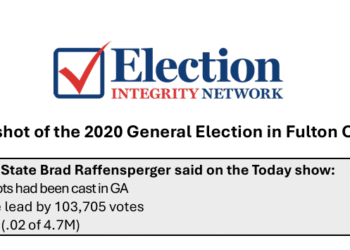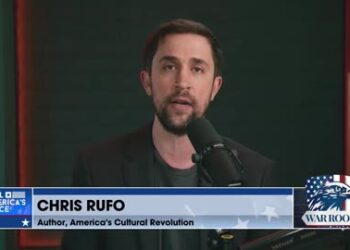Bannon’s candid interview was conducted with FRONTLINE on March 17, 2019 during the making of the two-part January 2020 documentary series "America’s Great Divide: From Obama to Trump.”
In a 2019 interview with Frontline, former White House Chief Strategist Steve Bannon discussed what he terms a “holistic approach” embraced by President Donald Trump regarding immigration policy. According to Bannon, this perspective transcends mere policy considerations, including sovereignty concerns and the protection of low-skilled workers, particularly Hispanic and African American individuals.
"Hey, guess what? We’re going to Washington, and we’re going to burn it down. We’re going to—hey, the permanent political class, we’re going to hit you with a blowtorch. You just lost. The populist party won, and we’re going to take you guys on” Steve Bannon to PBS 2019, about his dream victory speech for 2016.
In his remarks to PBS, Bannon highlighted the rise of populism in American politics, framing it as a significant force shaping the political landscape. He contrasts the traditional political establishment with populist movements, emphasizing the appeal of populism in challenging elite power structures and addressing the concerns of ordinary citizens.
Bannon suggests that both left-wing and right-wing populism have played pivotal roles in recent elections, referencing Barack Obama’s initial populist rhetoric and Donald Trump’s successful campaign as examples. He credits Trump’s understanding of mass communications and his ability to connect with voters as key factors in his electoral success, positioning him as a transformative figure capable of addressing populist concerns. Overall, Bannon explains Trump’s presidency as a manifestation of the populist movement, driving crucial debates on issues like immigration and trade and reshaping American politics in the process.
Bannon recounts joining the Trump campaign in mid-August of 2016 amidst a wave of negative media coverage. He emphasizes the need to refocus the campaign on core themes of populism and economic nationalism, urging Trump to contrast himself with Hillary Clinton as a true champion of American interests.
Drawing on his observations from the Upper Midwest, Bannon highlights the appeal of Trump’s message to disaffected working-class voters across racial lines. He sees Trump as a closer who resonates with ordinary Americans by addressing their concerns about job loss and national decline.
Reflecting on past elections, Bannon compares Trump’s populist approach to Obama’s early campaign rhetoric, noting their shared emphasis on challenging the political establishment. He argues that Trump’s success lies in his ability to communicate effectively with working-class Americans, unlike traditional politicians.
Discussing Trump’s engagement with cultural controversies like the NFL protests, Bannon attributes the president’s actions to his instinctual understanding of his base and his willingness to challenge establishment narratives. He sees Trump’s response to the Kaepernick controversy as indicative of his old-school patriotism and his knack for leveraging mass communication to connect with supporters.
Overall, Bannon paints a picture of Trump as a transformative figure who upended traditional political dynamics by tapping into the grievances of ordinary Americans and challenging the elites on issues like immigration and cultural identity.
Bannon highlighted Trump’s commitment to addressing immigration issues, delving into topics such as the constitutionality of DACA and the implementation of the zero-tolerance policy at the southern border. Despite media portrayals of Trump’s stance as wavering, Bannon viewed Trump’s actions as part of a deliberate search for solutions aligned with his beliefs, with voices like Stephen Miller and Jeff Sessions guiding the process.
Expressing support for the zero-tolerance policy as a tool to combat human trafficking and cartels, Bannon acknowledged challenges in its execution and messaging. He stressed the importance of effective communication to garner public support and avoid backlash.
Reflecting on the 2018 midterm elections, Bannon emphasized the significant role immigration, particularly the issue of caravans from Central America, played. He criticized the Republican Party for not making the midterms a referendum on Trump’s policies, suggesting that focusing on Trump’s agenda could have influenced the outcome.
While advocating for a hard-line stance on immigration, Bannon also underscored the need for empathy toward those fleeing dire situations in Central America. He proposed solutions such as breaking cartels’ power and increasing engagement in Central America to address the root causes of migration.
Despite leaving his White House position, Bannon affirmed his commitment to immigration issues, citing involvement in initiatives like building physical barriers on the southern border as evidence of ongoing engagement with the problem.
Resources:
America's Great Divide: Steve Bannon, 2nd Interview | FRONTLINE https://t.co/KG7txHll94
— Grace Chong 🇺🇸 (@gc22gc) May 11, 2024
Part One:
America’s Great Divide: Steve Bannon- A PBS Recap [DOCUMENTARY]




